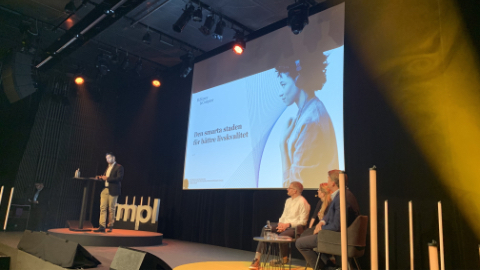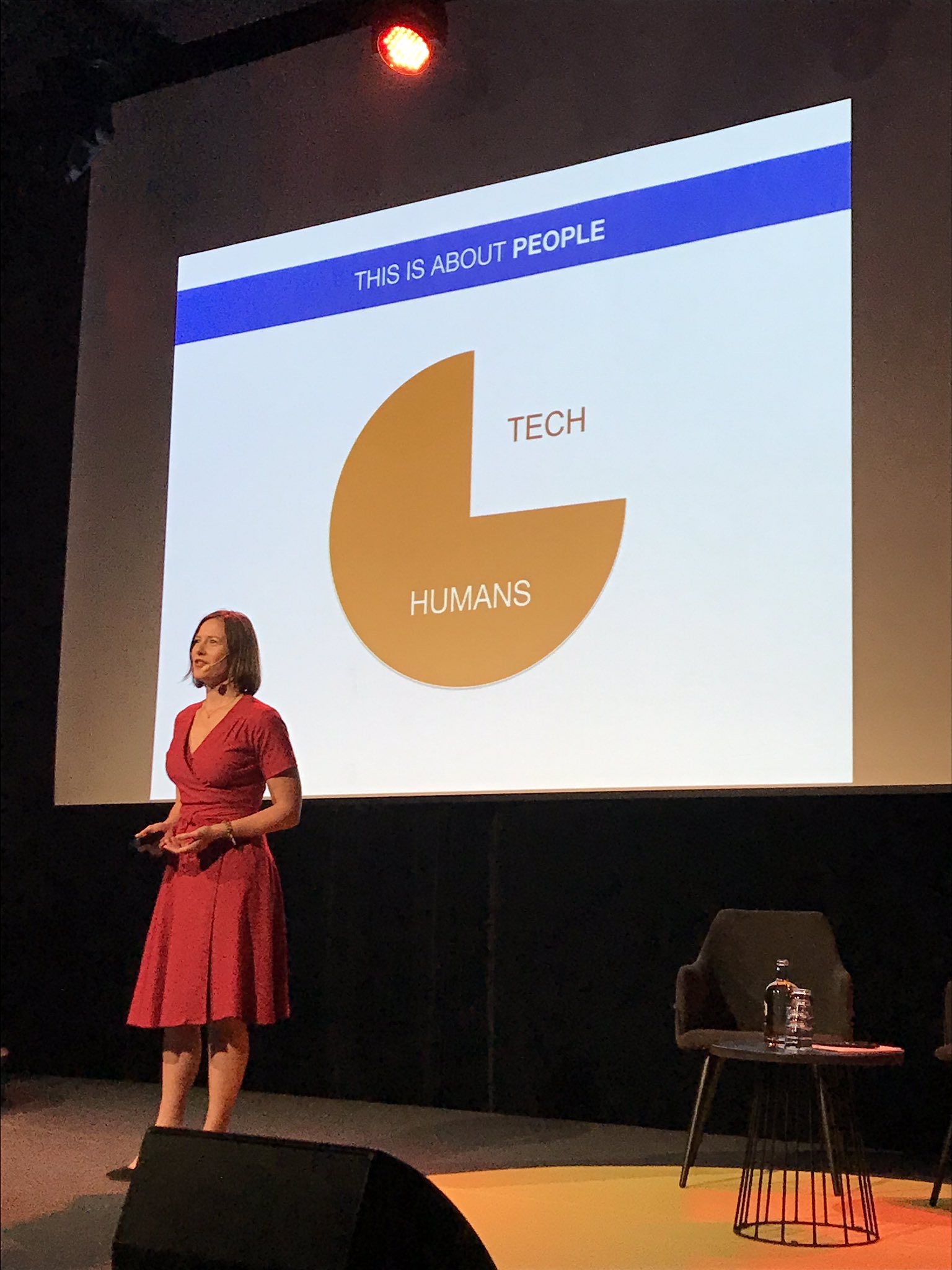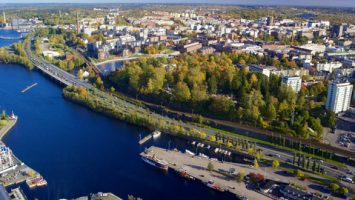
Tracey Crouch has a tough job as London’s Minister of Loneliness. In Britain, more than 9 million people report feeling isolated. This is a societal conundrum. City populations are growing while technology keeps us increasingly connected. So physically and digitally we are closer together than ever before. But still people of all ages – especially young adults – are experiencing solitude and sadness.
Many of the solutions that researchers and behavioral scientists provide are non-tech related and include things like “unplug” and “become a better listener”. While valuable advice, this seems a bit disjointed with the current reality. Our modern era is defined by the digital experience. So perhaps another solution is to design technology to help us become better offline connectors.
This was one of the many discussions presented at Tmpl Talks in Uppsala, Sweden. On April 24, business leaders, academics and politicians gathered to inspire discussion about how emerging technology can play a positive role related to societal challenges. The goal is to use technology to enhance life in the city and decrease the negative effects of always being connected.
And, yes, it seems ironic that the instigator and the solution – connected technology – are one in the same. Upon deeper investigation, it turns out that the differentiator is the intention of the innovation. If designed thoughtfully, technology can convene, delight and connect. If designed to manipulate, addictive behavior ensues, and people become overly attached to a non-human world – a game, a platform, social media.

This is a difficult conversation to have and an even more challenging topic to host in an organized forum. The organizers for Tmpl Talks skillfully navigated the discussion and facilitated a forum with a range of experts including Sweden’s Minister for Energy and Digitization Anders Ygeman; Isobel Hadley-Kamptz who is a journalist, author and researcher on the impact of digitalization; real-estate IoT expert Christoffer Börjesson; Olga Kordas with Viable Cities; Raoul Joshi with McKinsey & Company along with architect Nina Borgström and the leader of Sweden’s first behavioral agency, Ida Lemoine. I had the honor of providing the keynote address.
It is inspiring to see the private sector lead this conversation. The CEO of Tmpl, Henrik Svanqvist, designed the forum to be a facilitator for the difficult conversations that will continue to emerge in the realm of Smart Cities.
And Mr. Svanqvist is on the front lines of this topic. His technology, Tmpl is a digital platform that integrates people in defined communities – whether a city, a district, a neighborhood or a shared living complex. The digital communication and open, inclusive service platform is applicable to both commercial and residential properties.
And it seems that Sweden is the place to set the bar for this type of open-dialogue on challenging issues. From a technology perspective, when it comes to digital connectivity, Sweden is front of the pack. They were an early champion of 5G; they fundamentally understand that connectivity is king and more means better and faster. After all they are the home of Ericsson, one of the world’s leaders in making 5G networks a commercial reality.
And then there is the concept of Fika, a well-known term in Sweden that literally translates to ‘have a coffee’. But the meaning is something much deeper and gets to the heart of being human. It is simply an opportunity to pause and talk and listen to others. It is about true connection – and sometimes coffee and delicious pastries are involved.
As I mentioned in a previous article about my experiences in Sweden, we have a lot to learn from this culture and country. “They emphasize trust and pursue a holistic, inclusive, cross-disciplined approach with a focus on win-win.”
Meaningful dialogue is an essential component if we are all going to thrive in this Fourth Industrial Revolution. As Americans, we also have something of value to offer in the way of our entrepreneurial tendencies. We have a propensity to act, to innovate and to experiment without fear of failure. The balance between the Swedish and American approaches is where the real sweet spot lies.
It seems that the era of Smart Cities is marked by opposing forces. Being always connected has unintended consequences that results in a deep feeling of isolation. Efficiencies realized by insights revealed from massive amounts of collected data can be perceived as ‘big brother’ if not managed and messaged carefully. And there are many more examples.
We must have more patience for different perspectives. I hope that we can become better listeners and better investigators. That we can all be more open to exploring new ideas, talking to each other without the desire to prove a point. If Americans can adopt a few Swedish habits, we can share our unique talent to act and innovate. I’ve seen this combination work as demonstrated at Tmpl Talks, and I hope this is a sign of many more of these types of forums to come.


